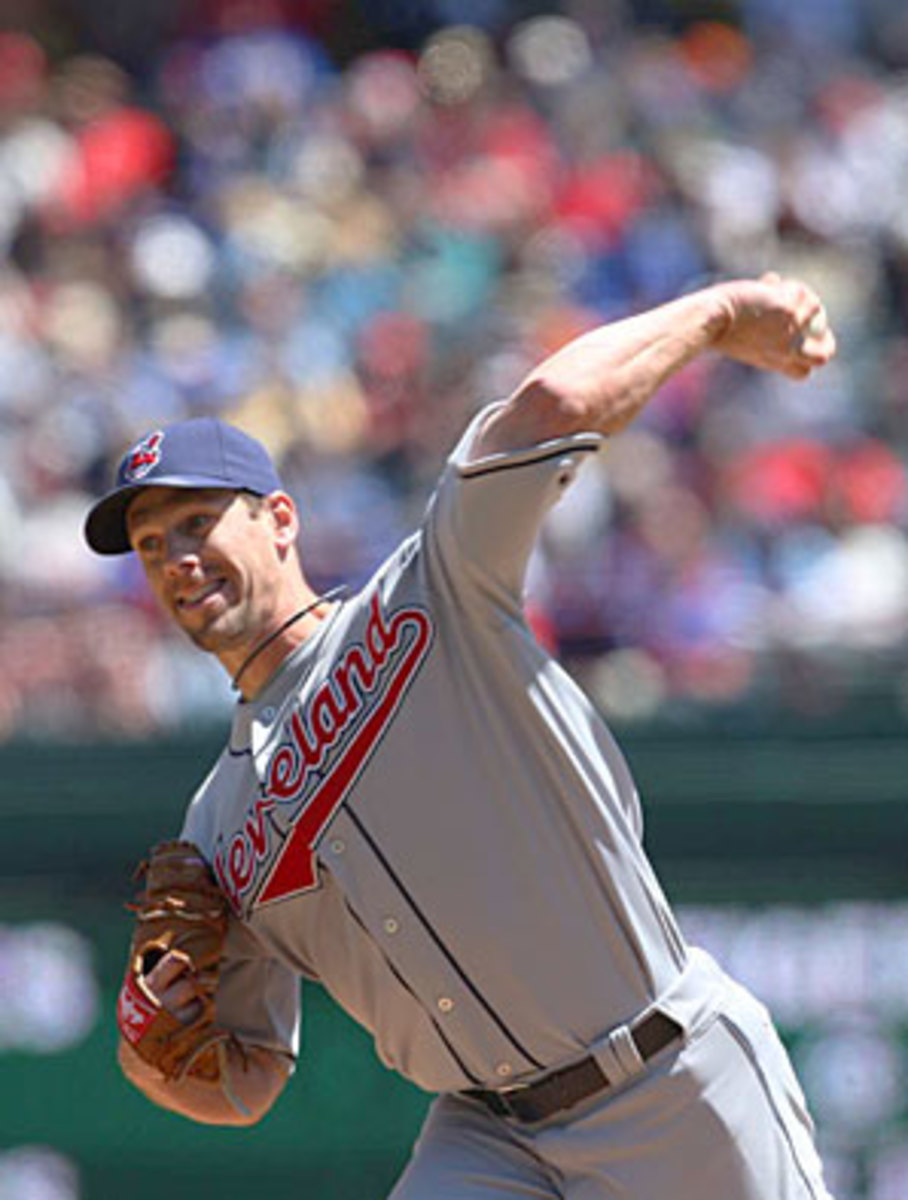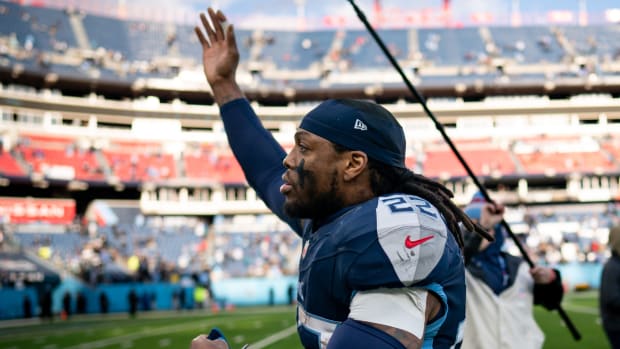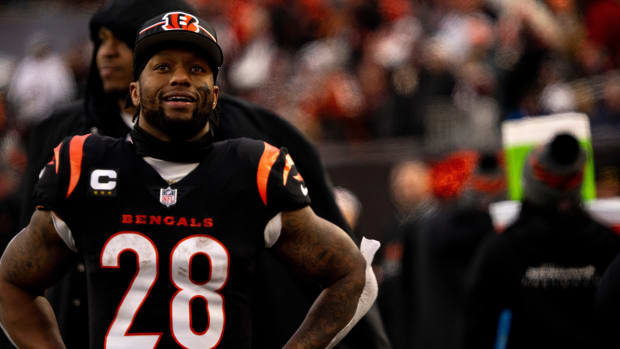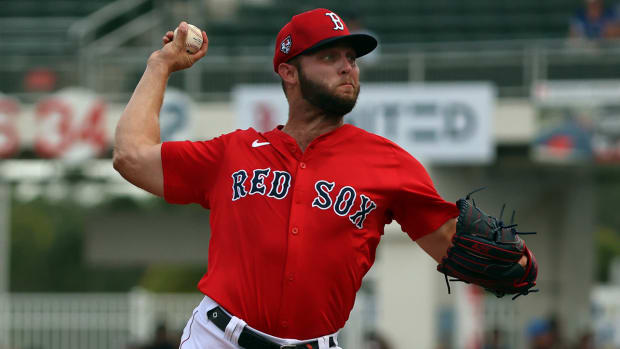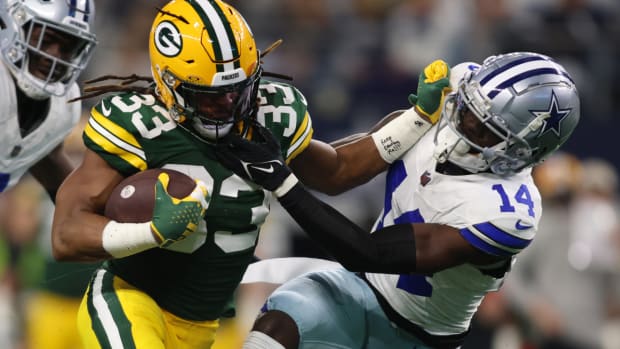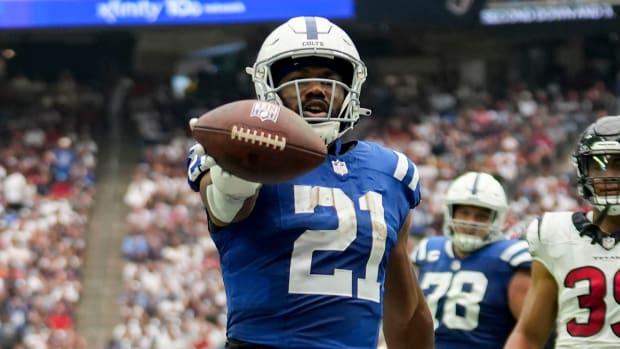Deconstructing: Cliff Lee
Dictionary.com defines the word "aberration" as "the act of departing from the right, normal or usual course." In the case of Cliff Lee (SP, CLE), it's been difficult to define exactly what a normal course is. In six seasons as a regular starter (prior to 2009), he's posted an ERA over 5.43 twice, won 18 or more games twice, missed an extensive amount of starts due to an abdominal injury twice, pitched 200 or more innings three times, maintained a WHIP greater than 1.40 three times, and, ultimately, has been a Cy Young Award candidate twice, including 2008, when he won the award.
Surely, his 2008 campaign nearly came out of nowhere. Even though he finished fourth in the American League Cy Young race in 2005, last year's numbers -- 22-3, 2.54 ERA, 1.11 WHIP -- were so out of the ordinary for a 29-year-old pitcher to suddenly produce at that level that some fantasy owners might have assumed his 2009 campaign would turn the opposite way. And so far it has.
Looking at Lee's dismal numbers to start the year emphasizes again the unpredictability of pitchers, but also demonstrates how difficult it can be to trust the statistical pattern of a player who blossoms in his late 20s. The trust level is nil. In any case, let's take a look at Lee's 2008 season and his first two starts of '09 to see what has gone so right -- and so wrong.
2008: 22-3, 2.54 ERA, 1.11 WHIP, 170 K's in 223 1/3 IP2009: 0-2, 9.90 ERA, 2.20 WHIP, 10 K's in 10 IP
My first question when looking at Cliff Lee would be the following: What the hell went so right last year?
For one thing, his control reigned supreme. His BB/9 rate was at a career-low 1.37. Lee had never posted a BB/9 rate lower than 2.32 (which he had in 2005), although he did produce a 1.80 mark in 41 frames of Triple-A Buffalo in 2007. His control was so good last year that he allowed more than two walks in a game just once in his first 29 starts before ending the year with back-to-back starts in which he surrendered three free passes. At time his control was so outstanding that he had 11 games last year in which he didn't issue a single walk, with seven of those starts lasting at least eight innings.
That masterful control enabled Lee to maintain such a low WHIP, even as he yielded 10-plus hits in six appearances. Four of those occurrences came in his last 13 starts, when he gave up an average of eight base-hits per appearance (he allowed six hits on average in his first 18 starts). And there was more suspect pitching toward the end of the season.
Lee served up eight homers in his first 28 starts, never going back-to-back games with a home run allowed. He was touched up for four homers in his final three starts, with at least one homer in each game. Additionally, Lee had two of his seven highest pitch counts in his final two starts.
Lee's high pitch count last year was 120, and he had six other appearances before those final two in which he tossed between 111-117 throws. But he recorded 113 and 114 pitches, respectively, in his last two outings. That speaks to more inefficiency in his game, although it's conceivable that there isn't much difference between pitching in the 111-115 range vs. the 106-109 range. That's likely a one batter difference.
When you put all these numbers together -- the back-to-back games of three walks, the increase in hits toward season's end, the uptick in homers allowed, and the more inefficient pitch counts -- what you have is a guy who clearly tired at the end of the season.
It's understandable why he was so tired, since he threw a career-high 223 1/3 innings. He had thrown just 97 1/3 frames in the bigs the year before, and even when you factor in his 48 innings in the minors in '07 that made his innings total 145 1/3, Lee's innings increased by 78. SI.com's Tom Verducci would have a fit over that kind of inning increase from one year to the next.
If you are a believer in the "30-inning Theory" -- that any pitcher who throws 30 more innings than the previous season is in store for health trouble the following year -- then Lee's first two games shouldn't come as a surprise.
His first contest (5 IP, 10 H, 7 ER, 1 BB, 5 K) was against the Rangers, obviously an imposing lineup that was discussed a bit in last week's Nelson Cruz (OF, TEX) piece. Lee threw just 79 pitches in five innings. What's interesting is that only 60 percent of Lee's pitches were fastballs, compared to 70 percent averaged per game in 2008.
Of course, Lee began the game pounding hitters with fastballs, throwing heat for 12 of his first 13 pitches and 31 of his first 40. In fact, 33 of his 48 fastballs were thrown in the first two innings. His fastball speed stayed consistently in the 89-91 mph range (similar to last year's speed), topping out at 92 a couple times.
As he moved toward the fourth inning, Lee began transitioning heavily to breaking pitches and his change-up. Perhaps this was a stamina issue, since Lee was working a less-than-ideal pitch count. In any case, the Rangers began hitting more line drives and fly balls, with four, including a homer, coming in the fifth inning. Even though he was facing a devastatingly powerful Rangers lineup in hitter-friendly Rangers Ballpark in Arlington, Lee was far too hittable.
The second game, versus the Blue Jays, was more disconcerting. Lee did strike out five for the second consecutive game, and he did cut down on his hits allowed from 10 to seven in his second outing. But he lasted just five innings again, only this time his pitch count soared to 102. His 67 strikes accounted for a slightly higher percentage (65) of his pitches, but not by much from his first start.
His walks increased to four, but he continually fell behind hitters, so his pitches accumulated. He fell behind in the count to 16 of the 26 batters he faced, including seven of the first 10. Six times Lee faced 2-0 counts, putting much more stress on his arm, which results in a far more inefficient performance.
Twelve of the balls in play he allowed were split between fly balls and line drives, with five ground balls. Even less ideal, eight of his 102 pitches went for a whiff and a strike. Lee was never a strikeout maven, but to miss a bit so few times isn't good news. Obviously the more times a batter connects on a pitch and puts it in play, the more likely the ball will go for a hit or the defense will make a mistake.
Lee's increased problems with control and efficiency are most concerning to fantasy players. He's already getting pounded with a barrage of hits, and he's throwing fewer fastballs. It's tough to figure out if he has a health issue, since only he would truly know. In the meantime, his battles with controlling his pitch count could lead to a much higher walk rate than what his owners were used to last year. It was probably inevitable that Lee wouldn't carry that 1.37 BB/9 rate from last year to this year, but what's problematic is the risk of that rate ballooning to a figure that's unmanageable for a starter.
Lee has a high-profile start on Thursday in the Yankees home opener against his former Indians teammate CC Sabathia (SP, NYY). The Yanks' lineup isn't as vaunted as it's been in the past, but they'll still be a good test for Lee, especially with patient hitters Derek Jeter (SS, NYY) and Johnny Damon (OF, NYY) at the top of the lineup.
Even after reviewing his control issues late last season and in his first two '09 starts, don't give up on Lee if he struggles in his start at Yankee Stadium. Remember how much Sabathia struggled in his first few starts last year before turning in a Cy Young-worthy campaign? The lefty had a 13.50 ERA after those four starts, but managed to get it down to 2.70 by the end of the year.
What's more sensible than panicking and sending Lee off to another team who might benefit from a mid-season resuscitation is lowering your lofty expectations. He's probably not going to win another Cy Young (Sabathia might have something to say about that now that he's back in the AL), and he likely won't be a Top 10 candidate. But he can still be a valuable pitcher for your team. Come to grips with the fact that Lee can have a good season without approaching his elite statistics from last year.
Kyle likes to deconstruct players, but he wants to know what you like as well. If you have any questions, comments or suggestion for future players to deconstruct, send him an email at kylestack@rotoexperts.com.
Follow RotoExperts on Twitter at http://twitter.com/rotoexperts, and partake in the RotoExperts.com's live MLB chats every Sunday at 9 p.m. EST. Just go to www.rotoexperts.com and look for the CoverItLive blog.
































